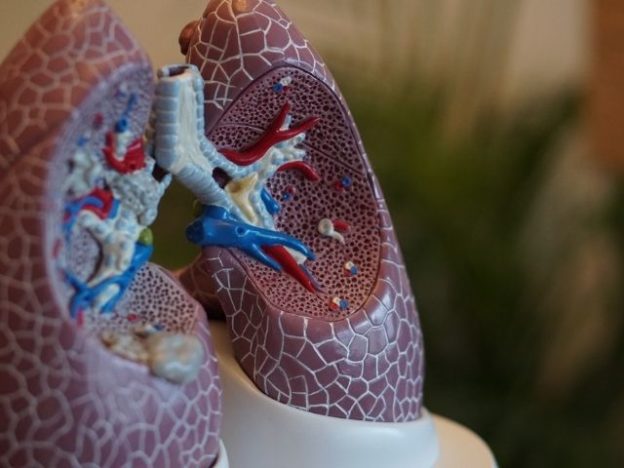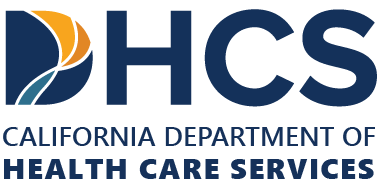Marijuana’s health risks are hotly debated, and almost all sources point out that more research is needed to understand them fully. However, in addition to the documented mental health effects of marijuana, there are numerous physical health effects of marijuana. These include side effects of marijuana on the lungs, brain, and heart. While some of the occurrences detailed below are quite rare (such as cannabis-induced stroke), others are not (such as marijuana’s adverse effects on brain development in young people). Is marijuana harmless? You decide:
Marijuana’s effect on the Lungs
Smoking marijuana is associated with greater risks of COPD and damage to lung tissues and damage to blood vessels. In fact, there are quite a few parallels between smoking marijuana and tobacco. Though marijuana smoke contains less compounds than tobacco, a marijuana smoker’s lungs can expect similar results as those found in tobacco smokers:
Decreased lung capacity
- This study broke 339 participants into four groups: cannabis only, tobacco only, combined cannabis and tobacco, and non-smokers. They found that one cannabis joint’s effect on the lungs was similar to 2.5-5 tobacco cigarettes. They also noted that cannabis smoking was associated with decreased lung capacity.
Coughing, wheezing, and sputum production
- This study, defining “frequent” cannabis use as 52 times in the previous year found that cannabis use was associated with morning cough, sputum production, and wheezing. They also found that reducing or quitting cannabis use was associated in reductions in those same symptoms. They found that reducing cannabis use often led to a resolution of symptoms, similar to those seen in non-users.
Increased risk of chronic obstructive pulmonary disease (COPD)
- This study found that marijuana smoke is associated with increased risk of COPD, and the risk is greatest among people who combine marijuana smoking with cigarette smoking.
- This study followed 299 participants over a mean of 9.8 years and found that continuing to smoke marijuana (or tobacco) had a “significantly increased likelihood” of having chronic bronchitis at follow-up.
Marijuana and its Effects on the Brain
Marijuana affects the brain by attaching to molecules on neurons called cannabinoid receptors in the brain, which influence pleasure, coordination, memory, and concentration among other things. It is well known that marijuana’s effects on the brain include impaired brain development in children and adolescents. As a substance abuse treatment program for adolescents and young people, we encourage you to take a look at our post on how drugs affect the brain of a teenager. Some of the research on the topic shows:
Potential for marijuana brain damage and impaired functioning
- A 2013 systematic review including 43 studies on marijuana’s health effects for adults and adolescents found that morphological brain alterations can be found in neuroimaging scans for both adolescent and adult marijuana users.
- This long-term study took data from a cohort of 1037 individuals who were interviewed at ages 18, 21, 26, and 38. Neurological testing was conducted on users at age 13 and again at 38. They found that persistent cannabis use was associated with neuropsychological decline across all domains of functioning.
- This study found evidence that heavy chronic marijuana users have lower orbitofrontal cortex gray matter than non-using controls.
Some of these studies on marijuana effects on the brain appropriately point out that the evidence, in most cases, is open to more than one interpretation. Therefore, a call has been made for more longitudinal study in humans. Currently, the National Institute on Drug Abuse is conducting a large-scale study to learn more about the role marijuana plays in adolescent brain development in the long-term.
Marijuana’s effects on the heart & cardiovascular system
Though it has been noted that likelihood of heart complications in otherwise healthy individuals who use marijuana are low, marijuana use increases risk of heart-related problems in those with a history of heart disease or atrial fibrillation / arrhythmia. Marijuana has a dose-dependent effect on heart rate and creates high blood pressure immediately after use. Several suggestions about the cardiovascular effects of marijuana have been made, including increased risk of stroke and impaired cardiovascular system efficiency:
Cannabis-induced stroke
- This article examines the available research and discussed multiple studies where cannabis use is shown to be associated with risks of stroke, especially in the first hour after use due to blood pressure spikes.
- This research review further describes the incidence of cannabis-induced stroke as well as discusses cases of other cardiovascular problems such as cannabis-induced myocardial infarction (permanent damage to the heart muscle) and cannabis-arteritis (a rare peripheral necrosis of the lower limbs).
Complications with Arrhythmia
- A study of 2.4 million hospitalized cannabis users found that patients were 4.5 times more likely to die while hospitalized if they had some sort of arrhythmia or heart rhythm problem.
Increased Risk of Heart Attack
- This study found that the risk of heart attack is around five times higher in the hour after using marijuana.
- The American Heart Association has even gone so far as to release a statement asserting that cannabis use shows “substantial risks and no benefits for cardiovascular health.”
Impaired cardiovascular functioning
- This study found that one minute of exposure to marijuana second hand smoke impairs the function of the membrane that lines the inside of the heart and blood vessels in rats for up to 90 minutes. The study had the following to say: “Lack of evidence for marijuana SHS causing acute cardiovascular harm is frequently mistaken for evidence that it is harmless, despite chemical and physical similarity between marijuana and tobacco smoke.”
In Conclusion
In short, we would agree with Wolff et al’s assessment in their research review, stating, “In light of this review, cannabis has to be considered as harmful and the cerebrovascular risk when cannabis is consumed is probably underestimated.” Though almost all sources point out that more research is needed, it is undeniable that the physical effects of marijuana on the heart, lungs, and brain are real.
Marijuana use has been shown to be associated with increased risk of all sorts of heart and lung problems, as well as morphological changes in the brain and problems with development in adolescents and children.
If you or a loved one is struggling with marijuana use or any other type of substance abuse, we recommend you seek a consultation with a professional in your area. You are welcome to contact our substance abuse program for teens and young adults with any questions or to request a consult.






